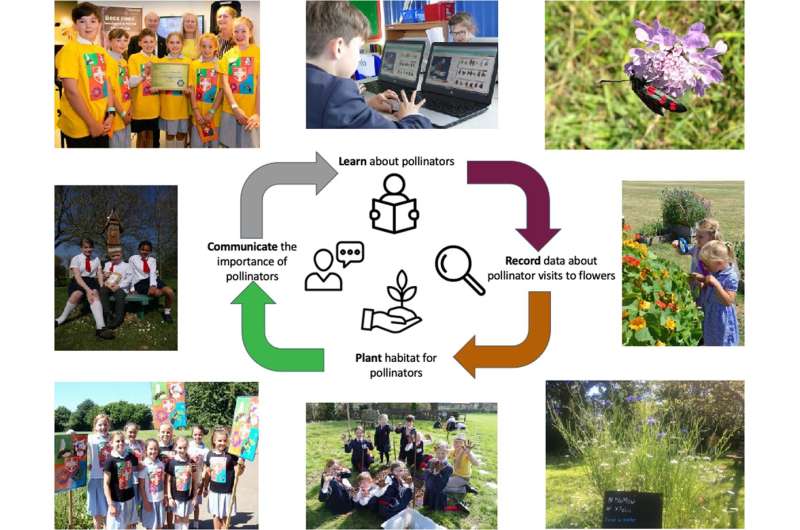
Researchers from Imperial College London and schools in the UK and Italy have co-developed a set of citizen science tools for school pupils to monitor pollinators including butterflies, bumblebees and beetles.
The project—X-POLLI:NATION—saw students and teachers in the UK and Italy share insights so that researchers could adapt citizen science tasks to suit a younger audience.
This empowered students to be able to collect vital data about pollinators, including their feeding preferences, with the help of field guides and forms developed for a younger audience.
Dr. Poppy Lakeman Fraser, Senior Project Coordinator in the Centre for Environmental Policy, said, “There is a lack of information in the curriculum and opportunities for young people to contribute at a local level to global UN targets, so it is incredibly important for projects like this to be embedded into the curriculum, both across the UK and internationally. This can empower the next generation of scientists to take action and address global challenges in an engaging and impactful way.”
“This tool ensures no one is left behind as it can be developed to suit students of all abilities, skillsets and ages. The next steps would be to see this implemented nationwide.”
The findings are published in the journal Citizen Science: Theory and Practice.
More information:
Poppy Lakeman Fraser et al, X-Polli:Nation: Contributing Towards Sustainable Development Goals Through School-Based Pollinator Citizen Science, Citizen Science: Theory and Practice (2023). DOI: 10.5334/cstp.567
Provided by
Imperial College London
Citation:
Getting citizen scientists involved in pollinator tracking (2023, July 7)
retrieved 8 July 2023
from https://phys.org/news/2023-07-citizen-scientists-involved-pollinator-tracking.html
This document is subject to copyright. Apart from any fair dealing for the purpose of private study or research, no
part may be reproduced without the written permission. The content is provided for information purposes only.